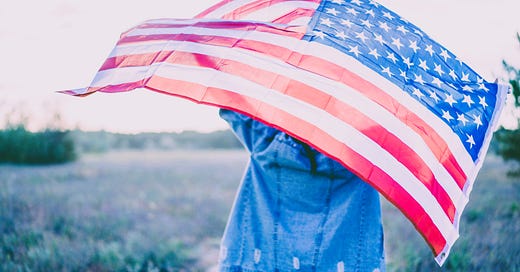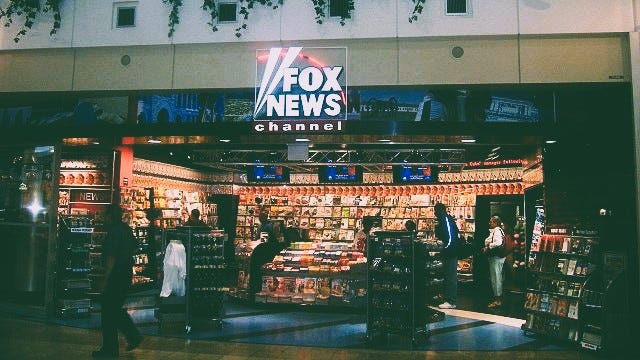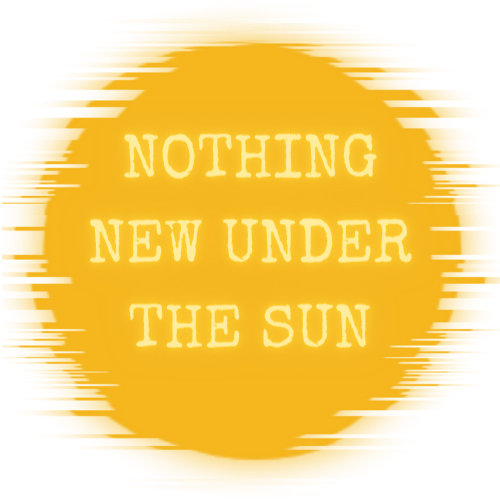Despite the existential stakes of this upcoming election, it is understandable how people tune out and miss campaign developments because of the divisive nature of following politics. Some people hold their political opinions close, even if they are provably uninformed or shed an unpleasant social animosity.
But is that okay for the health of democracy?
That’s a challenging and complex question.
One of the benefits of a stable society is that politics doesn’t have to be embedded in everything (at least overtly). Politics is about power at the end of the day, and power struggles can be inherently destabilizing and polarizing. To have an honest political discussion requires observing how our society is organized. It also requires one to be honest about where one is placed within the hierarchy of that society. That can be a disillusioning experience for some.
However, what tends to be overlooked is how politics has to be part of everyday life for people treated as second-class citizens or watching their rights dissipate. In our society, race, gender, gender identity, geography, religion, and education undergird the intersection between inequality and the American dream. That intersection is one of the reasons that diversity has been a major theme of American life over the last 50 years. It is why certain conservative policies seeking to dismantle the public square also continue to perpetuate inequality. The architects of those policies (often associated with Reaganism, paleoconservatism, and the broader New Right) overlooked the systemic factors of inequality and its relationship to support for public communities and participation. Private interests are not obligated to address social hierarchies, even though some do out of magnanimity. The collective citizenry can thrive in the public square if given the proper tools and representation. However, shrinking the public can also harm the citizenry’s unity and resolve, making vulnerable populations even more vulnerable.
Politics as Sportscenter: How Unserious Approaches to American Politics Harm Marginalized Citizens
Unsurprisingly, American politics is increasingly viewed as a televised sporting event rather than a vital democratic activity. Television’s growing influence has led to an immense obsession with instant information and instant gratification …
Politics can be overlooked as divisive and discomforting for people benefitting from a status quo. Still, it is existential to people struggling to pay bills with crushing student loan debt and retain their basic democratic and human rights. Political discussions can feel less threatening when people aren’t segmented from one another, especially when that segregation is historically determined by income, education, race, religion, or sex.
Conservatives have historically perceived themselves to be under attack in an overt, intellectual, and subliminal manner because they tend to be more sectioned off from the public than others as they advocate against the public sphere’s durability from the comforts of a well-funded, privatized bubble. Thus, they develop a paranoia and trench warfare mentality that may involve condescending to a greater public, which holds a majority opinion even if they can’t always articulate it. Another reason for the grotesque developments in conservative environs is that good-faith conservatives are attached to a messaging ecosystem that has been progressively taken over by bad-faith, anti-intellectual actors. That transformation results from the modern conservative movement’s inability to reckon with or imagine what conservatism means for marginalized groups who benefitted from center-left policy agendas or were not given a proper podium to express conservatism as it relates to their worldview or experiences as a person on the margins.
Applying conservative ideology to real life means that cities can seem scary when you only occupy commercialized zones that privatization propels over other defunded areas. It means public schools are awful when you force those institutions into a doom loop of poor funding while sending privileged kids to private institutions that put them on track to be further separated from the public.
If so many American ideals throughout history were built around evolving understandings of family, we must look at the larger nation as one family. To drain the family swimming pool because someone is dating a racial other or because one member wants to use the maintenance money for personal enrichment over the family’s enrichment also means the larger family no longer has a pool to enjoy together, and resentment builds.
Also known as drained-pool politics:
Accepting diversity, multiracial democracy, and rejoining the public square is a way to build a healthier conservatism. It won’t be an overnight process, but it’s a step in the right direction if they’re interested.
Conversely, America may be trending in a center-left direction as our perception of ourselves, our collective vulnerability, and our role in the world evolves into the new century. More Americans have a renewed understanding of the New Deal’s place in modernizing the nation. The ongoing rise of diverse, minority voices creates a differing view of America not as an infallible city on a hill but more of an experiment that has often failed in the face of human idiosyncrasies such as tribal racism, crony capitalism, and unwavering militarism.
Arguably, the growing progressive vision of America has an intellectual vitality that many Baby Boomers felt the conservative movement had as they transitioned from mid-20th-century Kennedy Democrats to late-20th-century Reagan Republicans:
The raw intellectual power, human diversity, and creative energy of young American progressives can be used to renew an American dream that seems to be faltering while also calling attention to historical inequities. At the same time, it can generate hubris, which is evident when examining the educational divisions that characterize American politics. Understanding policy cultures, political coalitions, and civic mechanisms demands a commanding grasp of history, political science, and philosophy. I’m lucky my forefathers planted the seeds in me at a young age, and the flowers bloomed over time as I ventured through AP History courses into my history major in college. It also came from internships, traveling, and precious networks of other accomplished and gifted humans. As Trump became a prominent political force in America, I felt it was a culmination of my history and political communications education (and personal fascination) that gave me the tools to dwell on the dark truths of the New Right and how proto-versions of Trumpism sprouted to the surface after decades of indirect, and direct, fertilization by mainstream actors. My journey was made possible by rare support systems which must be admitted.
Though left-leaning political forces in America have a better grasp of the facts, they can also remind people of what they didn’t have. As good as the left is at articulating their objectives and experiences, their delivery and breadth of knowledge can be a reminder that many cannot articulate their political opinions outside of exuding feelings, perceptions, and (sometimes bigoted) tribal loyalty. Progressives have become much better at messaging over the years, and the center-left slowly accepts them and their fears…sometimes:
However, Trumpism was a reminder that American society can be brutish, unsophisticated, and surface-level. There is beauty in these characteristics as much as it can be mind-numbing to experience it when delivering political ideas and data. Meeting people where they are opens their world to others while explaining the rugged edges. It ultimately tells the story of a nation still experiencing growing pains as frontier life, slave-based hierarchies, and company towns live on in spirit, even if an abundance of iPhones suggests hyper-modernity.
Ezra Klein’s podcast featured an episode that discussed the divide between people who pay attention to political developments and those who don’t. This discussion unpacks various related topics, from the outcomes of a “Post-Broadcast Democracy” to the cynicism of voters who are “pre-treated” to believe that all politicians are corrupt, like Donald Trump. He speaks to Yanna Krupnikov, a professor of communication and media at the University of Michigan. It is worth a listen.
There are layers to this level of disparity regarding one’s intake of political information. Some people care about certain things, while others have developed a mistrust of the mainstream and are marketed to by alternative news sources that promise access to secret information. The podcast unpacks how people who do vote (but also don’t follow political media as closely) tend to judge things more on economic vibes rather than news cycle developments, convictions in court, and the legislation that is passing. This tracks when we consider most of our primary concerns are in immediate reality and not the outcomes of esoteric legal battles, whether in the courtroom or on the floor of the United States Congress.
In the past, I haven’t been as forgiving about this because Trumpism excessively shocked the normal variety of graft that comes with observing politics. I also think some of the arguments presented on this podcast episode can be pollyannish regarding the prevalence of identity politics and how that translates to political stances primarily motivated by fear and/or a willingness to preserve hierarchy at all costs. Even if that cost means dismantling democratic norms and developments. Yet, the discussion makes keen observations about how Trumpism gamed out the 24/7 news media (and its polarizing outcomes) and how that worked towards normalizing authoritarian and strong-man impulses in our body politic.
I also would like to believe that most people try to be good and fair even if they are led into consistent gray areas. That has been difficult to see in the Age of Trump as right-wing people’s political advocacy, support, and messaging have become crueler, more racist, inconsiderately fact-free, and immoral. But the cynicism discussed in the above podcast does hit on some valid observations about a generation of political figures navigating a trade inexorably mired by big money, fast-talking, and good optics. Trump and Trumpism may be an indictment on a political culture (and generation of leadership) that has been hollowed out by corrupting forces within our democracy, from militarism to racial backlash to deregulated campaign financing.
American history is a push and pull between a wealthy private society and an increasingly democratic public. We exist in a time that reflects America’s First Gilded Age when industrial interests took precedence when organizing new territories, interpreting labor rights, and influencing the path of public servants. Today, we can consider the Second Gilded Age with a rising tech billionaire oligarchy, wealthy families with generations of money to spend on right-wing politicians, and the reality of monopolistic industries gauging prices in order to incite economic rage toward an administration that calls for unions, workplace regulations, and racial equality.
This political climate and the resulting apathy (or powerlessness) also impact how I collectively view “the people,” especially when they disappoint.
But oftentimes, things rarely change in America.









So many factors have contributed to The divisions and tensions in America. As you tried to describe, there are layers and layers that interact. To me, there are three basic interacting factors, and like any three-body-problem, it makes predicting very difficult.
The first is that over the last 50 years, America has become even more of a diverse, multicultural society. Many of the people who were not considered part of the mainstream, are now demanding that they be treated as equals, with equal rights, privileges, and justice. Many of the mainstream people find this upsetting. The second factor is that we are experiencing rapid technological changes that affect every area of everyones life: work, home, fun, relationships, communication, education, and politics. Many people feel overwhelmed, lost and confused. That makes them angry. The third, and most enduring factor is widening of the gap between those who have wealth and power and those who are losing it or never had it. As people become richer and more powerful, many of them use their wealth and power to gain more wealth and power. They have little concern for who gets deprived, trampled, suffer or die.
This election is a referendum that will determine if the billionaire overlords of the United States have been able to use an aging, corrupt, slightly deranged, TV performer to manipulate the masses into giving up their freedom, money, and “inalienable rights.”
Excellent thought piece, Steward.